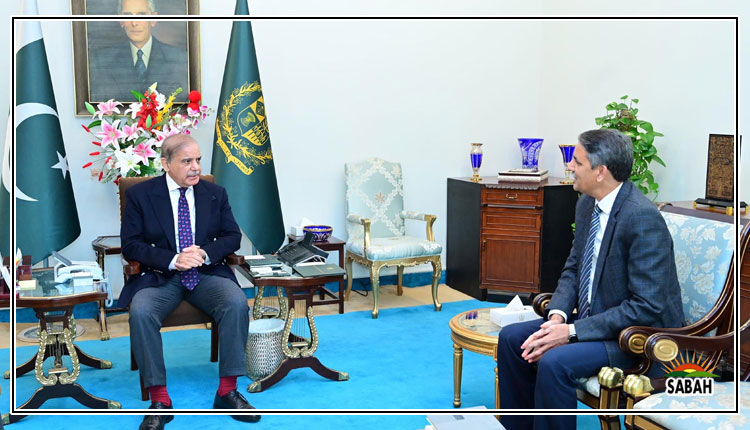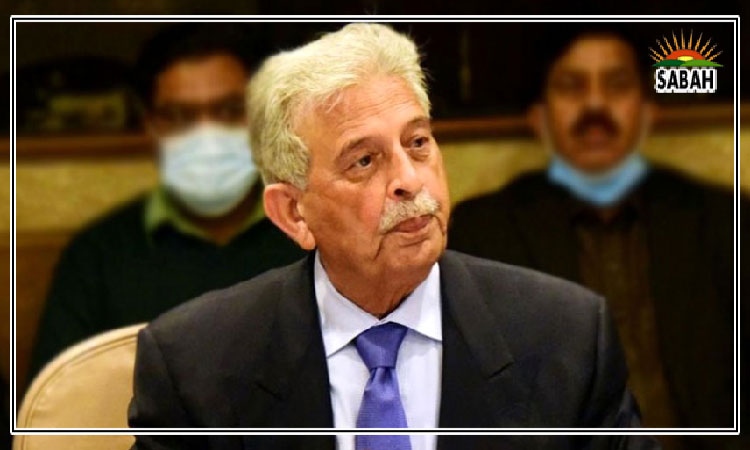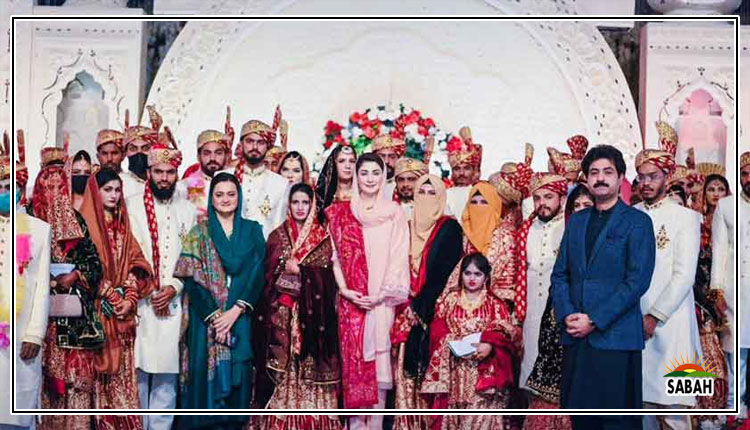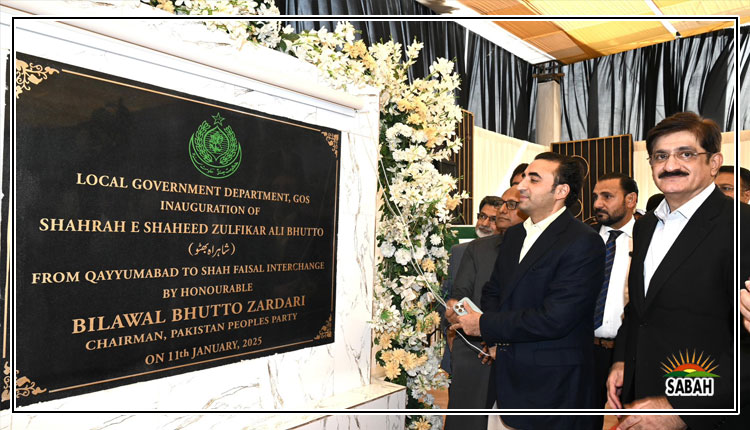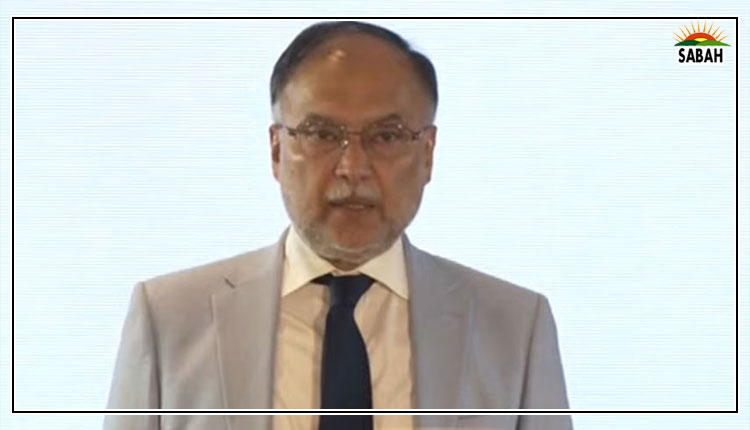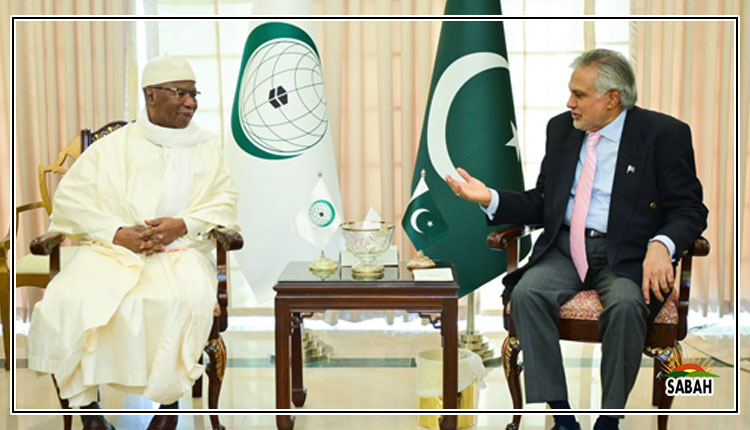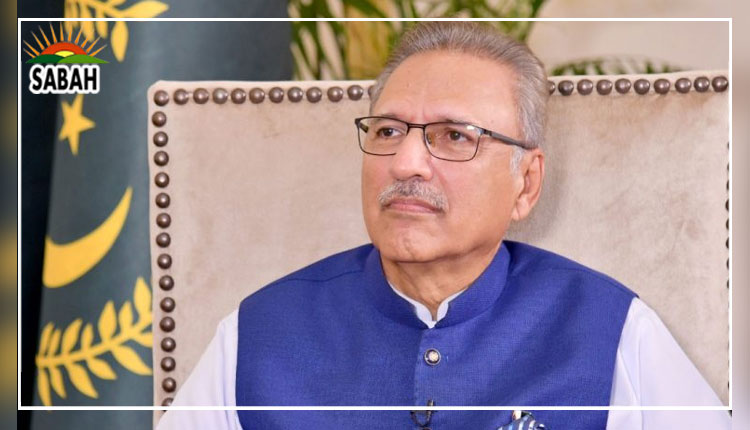President Alvi says Pakistan does not want to be a toy in anyone’s hands as it is an independent country
ISLAMABAD, Sep 01 (SABAH): President Dr. Arif Alvi on Thursday said that Pakistan does not want to be a toy in anyone’s hands as it is an independent country.
In an exclusive interview with Turkish news agency, President Dr. Arif Alvi said that Islamabad wants good relations with everyone and continued it is not looking for any polarization and does not want to be in any camp.
On a question pertaining to Turkish President Recep Tayyip Erdogan’s expected visit to Pakistan in September, the President said that Islamabad will welcome him. “Türkiye has a very deep, long-lasting relationship. In real terms of the Muslim Ummah, it extends 1,400 years, but in terms of statehood, since Pakistan came into being, that relationship is there in terms of people,” he added.
He went on to say when in the 1880s, Türkiye went through the Russian war and earthquakes etc., Muslims in of this areas which is currently known as Pakistan also generated funds and sent people to fight along with the Turkish people in different wars thus there is a deep understanding and deep relationships, irrespective of who comes into power, between the two countries.
About his visits of Türkiye, President Dr. Arif Alvi said whenever he met Turkish people, when he was the president or even before the presidency, it was always very impressive. It was very surprising that on the streets of Istanbul, the streets of other cities in Türkiye, there was love, brimming love, as soon as somebody identified himself as a Pakistani, he explained.
He said “I have seen Turkish taxi drivers not taking the fare from me, insisting this is brotherhood. So, this friendship is very deep, and therefore it is always expressed in very real terms by the presidents and the prime ministers of Pakistan and Türkiye.”
He further said that world is in flux and, therefore, those friends who have been together, need to re-cement their ties, need to look at the world in the new era in a new way. The strategic understanding of what is happening around Türkiye, as well as around Pakistan, is important, he added.
On a query about Pakistan’s relations with the US, China and Russia, President Dr. Arif Alvi said that it is up to the government to decide these matters as presidency does not carry options in this regard though it is a fact that Pakistan is an independent country and does not want to become a toy into hands of others. Pakistan is not looking for any polarization, and Pakistan does not want to be in any camp, he added. He also said that Pakistan has longstanding ties with the US and China.
About ties with Afghanistan, he said, “Our role should be looking for peace in Afghanistan because that is so essential for a relationship and movement of goods between the Central Asian states and to the sea. So, that is the route to economic prosperity. Pakistan and all these powers which I’ve mentioned have been looking for peace in Afghanistan.”
About Pakistan and China ties, he said, “We are very close friends with China. I don’t see. In fact, we’ve had a China-Pakistan Economic Corridor (CPEC) partnership which is very important to our economic interest. Pakistan has a huge youth bulge. And the world is interested, not only China, the world is interested in using our youth in the IT sector and others sectors.”
He went on to say that there’s a sheer dearth of human resources as far as the IT sector of the world is concerned. There is more data available in the world and individuals to analyze that data. So therefore, our cooperation with China in all sectors started with the energy situation, then poverty alleviation, and job creation, he added.
“Of course, the China-Pakistan Economic Corridor (CPEC) is for the movement of their goods through Pakistan, which is easier than taking their goods from the westernmost provinces to the sea, near Beijing or other ports. Our cooperation with China has been very positive. And I think that will continue,” he added.
Regarding relations with India, the President said that Pakistan has been looking for peace, adding that whether India is looking for peace, he is not sure. Because all our overtures have been put under a question mark, he believes that India’s actions in Kashmir were a serious setback to peace, he said, adding that there are demographic changes that are happening in Kashmir, whereby they are trying to change the polity and the public demography of Kashmir, (it) is a very painful venture for the people of Kashmir and also it goes against the initial Indian decision of giving it a special status.
He said they want peace with India as there is no question about it, but India should make a move towards peace. Saying that Kashmir cannot be discussed because it is a bilateral matter they are violating the United Nations resolutions so that’s not an overture for peace but Pakistan wants peace.
About political scenario of Pakistan, he said, “My role is to try to reduce this political polarization. It is a democracy – Pakistan is a democracy and Pakistan is gradually becoming a strong democracy. We are going through these trials and tribulations which are happening. I believe that the polarization needs my comments less because I do not want to add to that polarization. If anything I can do, I would like things to become more peaceful.”
He said that Pakistan prides itself on having over 60 or 70 channels and having free media but sometimes some actions of governments create a situation where the media gets afraid of reporting the truth and the right things, adding he believes progress needs to be made in that sector.
On a question regarding targeting journalists in the country, he said, “I think the media needs to be able to give us free expression. And I think the media is also responsible. Sometimes — I make certain statements and the media modifies — it catches my words rather than my meaning. But that is something which is a continuous battle with the media.”
He further commented, “You see the way international media expresses its biases. I expect the media to continue with their biases. The entire western media is Western-oriented. The entire eastern media is Eastern-oriented. They don’t understand each other’s biases and problems and they look at the world’s problems through the same lens.”
About a question about military establishment of the country, he said the Constitution of Pakistan is very clear on a few things. “The Constitution of Pakistan says you should not criticize the judiciary because the judiciary can come under pressure for example, and you should not criticize our armed forces. The (armed) forces are responsible for protecting Pakistan, for ensuring the fact that they do a tremendous job by handling terrorism in Pakistan,” he added.
He further explained, “You imagine Afghanistan right up to Syria, to Algeria. Imagine Libya to Yemen. Everything has collapsed because of terrorism. But it was the Pakistan Army and the people of Pakistan which fought a valiant battle and defeated terrorism. We suffered partly but it did not affect Pakistan. So, there was a tremendous contribution of the army.”
He further said, “Social media is a big media. You see, some of our leaders have a following of 17.5 and 20 million people. I joined Twitter in 2007 and I’ve been active and I’ve been telling people that this is a very strange phenomenon. This is a phenomenon that the new world is only trying to understand.”
About current devastation made by floods, President Dr. Arif Alvi said that he agrees with the stance taken by Prime Minister Mian Muhammad Shehbaz Sharif that there is so much structural damage that Pakistan should be looking for international help because the climate change situation will be affecting a lot of countries. We should be also welcoming international help to solve this problem, he added. He said the Ukraine war affected the other countries’ economies and some countries suffered more like Pakistan.
In his concluding remarks, he said, “Now you see rain devastation. International bodies should look at cooperation with Pakistan in restoring the infrastructure very quickly, and providing relief to thousands of people who have suffered.”



